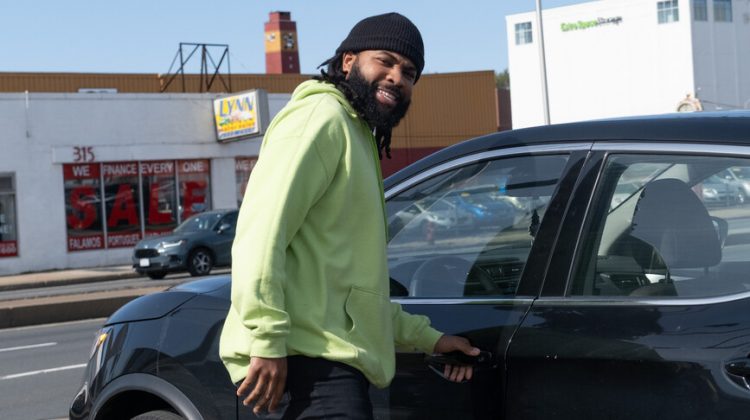LYNN — The Daily Item spent an afternoon with Roca Inc., a nonprofit that works with young people at the highest risk of incarceration, violence, and poverty. The Item shadowed youth worker Sted Bourdeau, a Lynn native and assistant basketball coach at Lynn Tech, who now dedicates his life to mentoring young men through some of the hardest — and most pivotal — years of their lives.
Bourdeau pulled out of the Roca parking lot and headed toward West Lynn to pick up one of the Roca participants for a one-on-one session.
“This is my third year officially with Roca,” he said. “But I’ve been doing youth work for more than 15 years. I grew up here, West Lynn. I had mentors who saw something in me when I couldn’t see it myself. Sports saved me. Structure saved me. Now I try to give that to somebody else.”
He rattled off names: City Councilor Fred Hogan, and community leaders like Sammy Anderson and Calvin Johnson. “They paid out of pocket to keep us in tournaments. They didn’t have to do that. But they did. Each one teaches one. That’s the way I look at it.”
Bourdeau picked up the young man and the conversation started light — casual memories, easy laughs. But as he drove back toward Roca, it deepened.
“I was locked up for two months,” the young man said quietly. “One day they just called me, like, ‘Yo, you got a class.’ I only went ‘cause I didn’t want to be stuck in my cell. But it ended up being a blessing.”
That class, run by Roca, was the start of a shift. Now, he was trying to stay focused on what mattered. “Everything changed for me. Only thing I’m focused on now is living a better life and staying away from what wasn’t serving me.”
Back at Roca’s Lynn office, Bourdeau led the young man through a session from the “24/7 Dad” curriculum. The focus: emotional health, fatherhood, and mental resilience.
“I was told as a boy that crying made you soft,” Bourdeau said, seated beside him. “But all that bottling up? That got me into things I shouldn’t have been in. I’m trying to do the opposite now. Break the cycle.”
The young man nodded and said he hadn’t cried in years.
“I cried so much when I lost two family members that I dried up. Now, I don’t even know how to cry. But holding stuff in? That’ll kill you.”
They talked about parenting — co-parenting challenges, love languages, how emotions, if left unchecked, can spiral.
“We’re creatures of trauma,” Bourdeau said. “But everything starts and ends with a conversation. Emotions are energy. You get to choose how you use them.”
When asked to rate his mental health, the young man didn’t hesitate. “Two out of five. PTSD. I’m doing this without meds. Some days I don’t even get out of bed.”
Bourdeau shared his own practices: going to the beach, working out, listening to old-school music. The conversation moved to fatherhood, responsibility, and what it means to show up for a child — even when the parents aren’t together.
“The child didn’t ask to be here. So your job is to show up. Even when it’s hard. Especially when it’s hard.”
As the session wrapped, Bourdeau asked what the young man was taking away.
“Just knowing how I handle my emotions can pass on to my kid. That matters.”
That conversation wasn’t an outlier — it was the work, repeated every day by Roca’s team.
After the session, other staff members echoed that same focus on emotional literacy, personal responsibility, and relentless support.
Abigail Leon, who teaches inside the Middleton House of Correction, said even behind bars, growth is possible.
“Cognitive Behavior Therapy helps them understand their triggers, their patterns. A lot of these guys never had space to talk about what they’ve been through. But once they do, something shifts. They realize they have choices.”
Sianna Casey, who teaches GED prep and behavioral health, said the key is showing up.
“A lot of our participants were suspended or expelled from school. This is a second chance. And for most of them, it works better in a one-on-one setting.”
Emily Fish, Roca’s assistant director in Lynn, agreed. “We work with young people nobody else wants to. And we don’t give up. That’s the job.”
For Bourdeau, that job means answering the phone at 3 a.m., or getting a text that says, “Yo, I need help.”
“That’s when I know the trust is real. That’s when I know the work’s working.”

